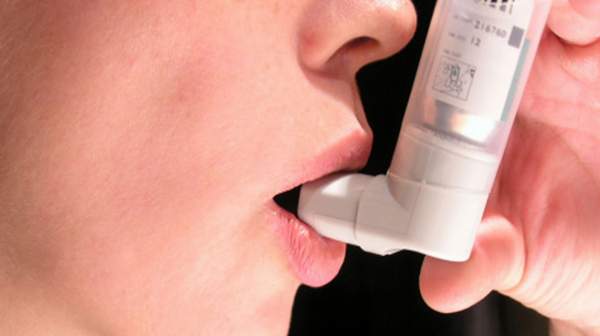What's in this article?
What is Asthma?
Asthma is a disease affecting the airways that carry air to and from your lungs. People who suffer from this chronic condition (long-lasting or recurrent) are said to be asthmatic.
The inside walls of an asthmatic’s airways are swollen or inflamed. This swelling or inflammation makes the airways extremely sensitive to irritations and increases your susceptibility to an allergic reaction.
As inflammation causes the airways to become narrower, less air can pass through them, both to and from the lungs. Symptoms of the narrowing include wheezing (a hissing sound while breathing), chest tightness, breathing problems, and coughing. Asthmatics usually experience these symptoms most frequently during the night and the early morning.
What Causes Asthma?
The exact cause of asthma isn’t known. Researchers think some genetic and environmental factors interact to cause asthma, most often early in life. These factors include:
- An inherited tendency to develop allergies, called atopy (AT-o-pe)
- Parents who have asthma
- Certain respiratory infections during childhood
- Contact with some airborne allergens or exposure to some viral infections in infancy or in early childhood when the immune system is developing
If asthma or atopy runs in your family, exposure to irritants (for example, tobacco smoke) may make your airways more reactive to substances in the air.
Some factors may be more likely to cause asthma in some people than in others. Researchers continue to explore what causes asthma.
Symptoms of Asthma
Asthma symptoms vary from person to person. You may have infrequent asthma attacks, have symptoms only at certain times such as when exercising or have symptoms all the time.
Asthma signs and symptoms include:
- Shortness of breath
- Chest tightness or pain
- Trouble sleeping caused by shortness of breath, coughing or wheezing
- A whistling or wheezing sound when exhaling (wheezing is a common sign of asthma in children)
- Coughing or wheezing attacks that are worsened by a respiratory virus, such as a cold or the flu
Signs that your asthma is probably worsening include:
- Asthma signs and symptoms that are more frequent and bothersome
- Increasing difficulty breathing (measurable with a peak flow meter, a device used to check how well your lungs are working)
- The need to use a quick-relief inhaler more often
Who Gets Asthma?
Typically, it develops during childhood, but it can affect you at any age. People who have allergies or a parent or close family member with asthma are more likely to have the condition. More boys have asthma than girls, but it’s more common in women than in men.
What is Occupational Asthma?
Some types of jobs can raise your chance of having asthma as an adult, such as working in a factory or another place where you’re regularly around and breathing in chemicals or dust.
What is an asthma flare up?
An asthma flare-up is when asthma symptoms start up or get worse compared to usual. The symptoms won’t go away by themselves and need treatment.
These flare-ups can happen quite quickly (e.g. if you are exposed to smoke) but they can also come on gradually over hours or days (e.g. if you get a cold).
The term ‘asthma attack’ is confusing because it means different things to different people from a bout of wheezing after running for the bus through to being admitted to hospital for asthma.
An asthma flare-up can become serious if not treated properly, even in someone whose asthma is usually mild or well controlled. A severe flare-up needs urgent treatment by a doctor or hospital emergency department.
Quick Relief for Asthma Attacks
Even when you use long-term medication, asthma symptoms sometimes flare up. Rescue inhalers usually have drugs called short-acting beta2-agonists. They quickly relax the tightened muscles around your airways, so air can flow in and out of your lungs. This medication works for most asthma attacks, so you don’t have to go to the hospital.






Leave a Comment